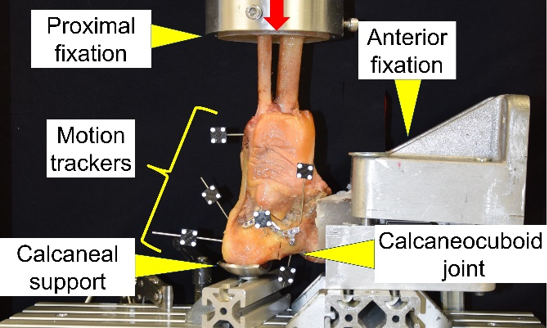Biomechanical investigation of locked plating and interlocked nailing of comminuted calcaneal fractures
Background
Treatment of comminuted calcaneal fractures remains controversial and challenging. Anatomic reduction with stable fixation results in better outcomes than nonoperative treatment of displaced intraarticular fractures involving the posterior facet and the anterior calcaneocuboid joint (CCJ) articulating surface.
Goal
To investigate the biomechanical performance of 3 different methods for fixation of comminuted calcaneal fractures.
Results
Comminuted calcaneal fractures, including Sanders III AB fracture of the posterior facet and Kinner II B fracture of the CCJ articulating surface, were simulated in 18 human cadaveric lower legs, randomized to 3 groups for fixation with either (1) 2.7 mm variable-angle (VA) locking anterolateral calcaneal plate in combination with 2 cannulated screws, (2) 2.7 mm VA locking lateral calcaneal plate, or (3) interlocking calcaneal nail with 3 separate cannulated screws, and biomechanically tested until failure under progressively increasing cyclic loading in simulated midstance position.
Plating with the larger lateral plate demonstrated the highest susceptibility to varus deformation and was associated with the biggest decrease in the Böhler angle, whereas both fixations with the smaller anterolateral plate and nail evidenced higher stability. Treatment of comminuted calcaneal fractures using either locked plate with additional longitudinal screws or interlocked nail combined with separate transversal screws seems to provide superior stability as opposed to plating only.
-
Partner
Enchev D (Prof), University Multiprofile Hospital for Active Treatment and Emergency Medicine 'NI Pirogov', Sofia, Bulgaria
Baltov A (Prof), University Multiprofile Hospital for Active Treatment and Emergency Medicine 'NI Pirogov', Sofia, Bulgaria
Raykov D (Prof), Medical University Varna, Varna, Bulgaria
Rashkov (Prof), University Multiprofile Hospital for Active Treatment and Emergency Medicine 'NI Pirogov', Sofia, Bulgaria


